Toasted Sesame Seeds: The Tiny Powerhouse of Flavor and Nutrition
Table of Contents
- Introduction
- What Are Toasted Sesame Seeds?
- Why Toasting Makes a Difference
- How to Toast Like a Pro
- Toasted vs. Raw: What’s the Real Difference?
- 5 Flavor Hacks Using Toasted Sesame Seeds
- Storage Secrets for Maximum Shelf Life
- Nutrition Perks You Can't Ignore
- Conclusion
Introduction
Let’s be real—toasted sesame seeds are like the quiet MVPs of your spice rack. They don’t hog the spotlight, but when you sprinkle them on a dish? Suddenly, everything gets better.
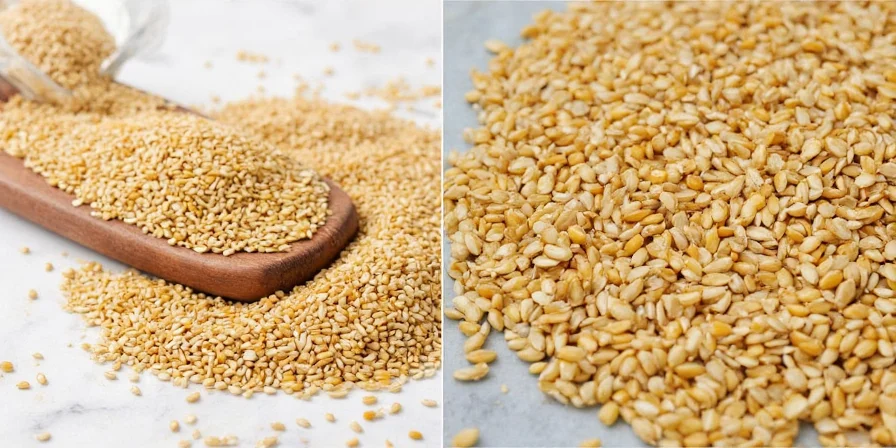
Whether you’re a seasoned chef or someone who just discovered the joy of homemade stir-fries, understanding how to use these little flavor bombs can take your cooking from “meh” to “mind-blowing.” So grab a handful of seeds, and let’s dive into the wonderful world of toasted sesame magic!
What Are Toasted Sesame Seeds?
Before we get too deep into the how, let’s clarify the what. Sesame seeds come from the flowering plant Sesamum indicum, and they’ve been used in cooking for thousands of years across Asia, the Middle East, and parts of Africa.
Now, here’s the kicker: most of us encounter them not raw, but toasted. That subtle color change isn’t just cosmetic—it’s transformative. Toasting develops a richer flavor and crunchier texture that sets them apart from their raw counterparts.
Why Toasting Makes a Difference
The Maillard reaction is the unsung hero here. When you toast sesame seeds, you trigger a series of chemical reactions that unlock complex flavors—think nutty, earthy, and slightly sweet all at once.
But wait! There's more:
- Better mouthfeel: Toasting adds crispness without making them hard.
- More aroma: Heat releases natural oils that boost fragrance and taste.
- Visual appeal: Golden brown seeds look sexier than pale beige ones.
How to Toast Like a Pro
You don’t need a culinary degree or fancy equipment. Just a pan, patience, and a pinch of attention. Here’s your foolproof guide:
- Dry roast in a skillet: Use medium-low heat, no oil needed.
- Stir constantly: Prevent burning by giving them a little dance.
- Watch for color change: Once golden and fragrant, you're done.
- Cool before storing: Let them rest on a plate so they don’t steam themselves soggy.
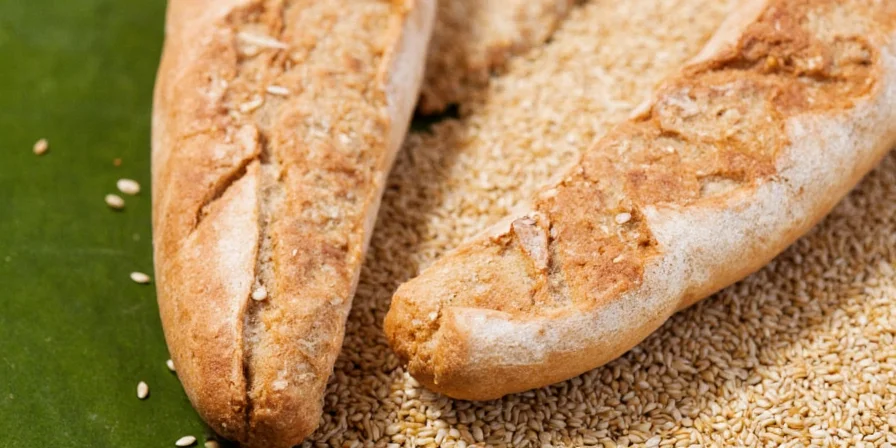
Toasted vs. Raw: What’s the Real Difference?
Raw sesame seeds have their place, especially if you're going for a neutral base or want a subtler texture. But let’s break it down side by side:
| Aspect | Toasted | Raw |
|---|---|---|
| Flavor | Nutty, aromatic, deep | Mild, grassy, bland |
| Texture | Crispy, crunchy | Soft, chewy |
| Appearance | Golden brown | Pale beige |
| Best For | Garnishing, sauces, snacks | Baking, doughs, pastes |
5 Flavor Hacks Using Toasted Sesame Seeds
Ready to impress your dinner guests or just yourself on a Tuesday night? Try these genius tricks:
- Make gomasio: Grind with sea salt for a savory topping.
- Toast with spices: Add chili powder, turmeric, or garlic powder during roasting.
- Blend into tahini: Mix with olive oil and lemon for an instant dip.
- Crunchy crust: Press onto chicken or tofu before baking.
- Sweet twist: Caramelize with honey or maple syrup for desserts.
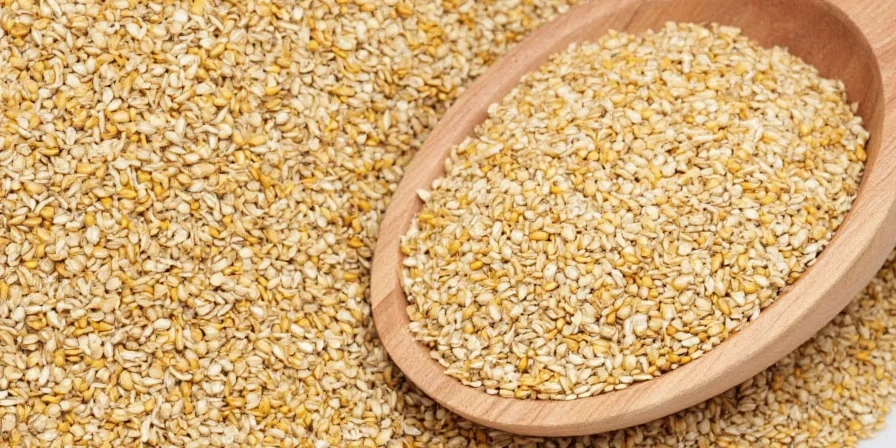
Storage Secrets for Maximum Shelf Life
Here’s the bad news: sesame seeds go rancid if not stored properly. The good news? It’s easy to keep them fresh if you follow these steps:
- Airtight container: Oxygen is the enemy.
- Cool, dark place: Think pantry or fridge.
- Freeze for long-term: Especially useful in hot climates.
- Use within 6 months: Even toasted seeds have a shelf life.
Nutrition Perks You Can’t Ignore
If flavor wasn’t enough, here’s why your body will thank you for adding toasted sesame seeds to your meals:
- High in healthy fats: Rich in polyunsaturated fats, especially omega-6.
- Good source of protein: Great for vegans looking to up their intake.
- Loaded with minerals: Contains calcium, iron, magnesium, and zinc.
- Antioxidant properties: Lignans like sesamin help fight inflammation.
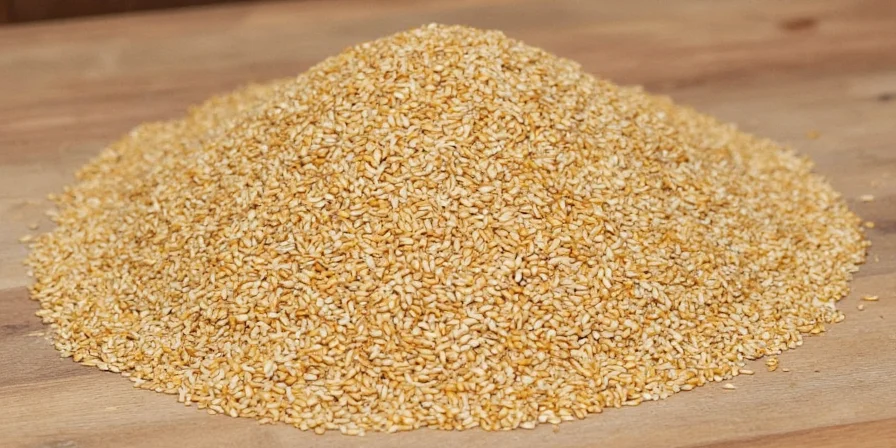
Conclusion
So there you have it—toasted sesame seeds are far more than just a garnish. Whether you're spicing up your weeknight stir-fry or adding depth to your baked goods, this tiny seed punches way above its weight class.
Remember, the secret lies not just in tossing them on top, but in knowing when and how to toast, store, and use them right. Now go forth and sprinkle some toasted sesame love into your next meal!

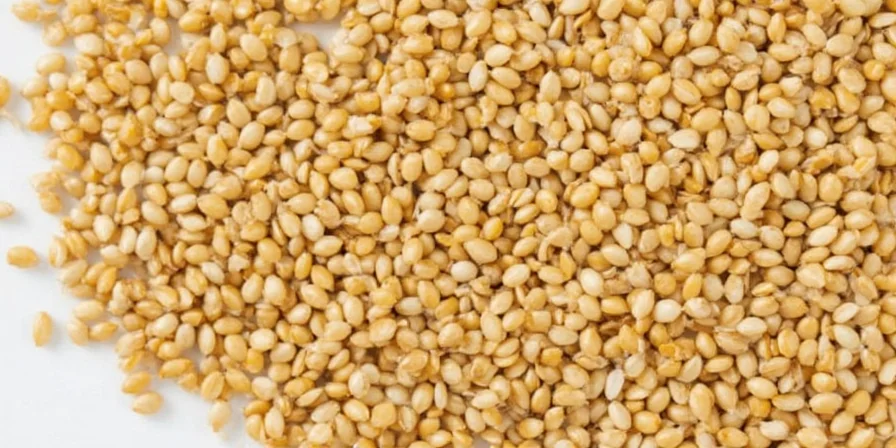









 浙公网安备
33010002000092号
浙公网安备
33010002000092号 浙B2-20120091-4
浙B2-20120091-4